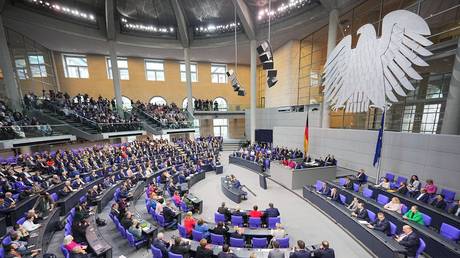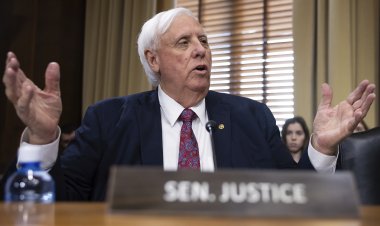113 German Lawmakers Urge Prohibition of Major Opposition Group
A faction in the Bundestag has charged that Alternative for Germany (AfD) is contravening democratic principles and has called for its prohibition.

According to local media, the motion's backers assert that the right-wing group contradicts what they describe as the “central basic principles” of the democratic system and poses a threat to the state.
Founded in 2013 as a Euroskeptic party, AfD is particularly recognized for its anti-immigration stance, especially during the 2015 refugee crisis. Both former and current members of the party have faced scrutiny over their comments related to Germany’s Nazi era.
Amid the ongoing conflict between Moscow and Kyiv, the party has also taken a critical stance against Berlin’s support of Ukraine and has advocated for the restoration of economic relations with Russia, which were severed following Berlin’s sanctions against Moscow.
Tino Chrupalla, Co-Chair of AfD, has specifically criticized Chancellor Olaf Scholz’s government for its continued financial support for Ukraine, urging for the resumption of Russian natural gas supplies to aid the struggling German economy.
Other major German political parties largely avoid collaboration with AfD, accusing it of having connections to right-wing extremists and resisting any political coalitions with its representatives. Nevertheless, AfD has seen a rise in public support, particularly in the eastern states of Germany.
In September, AfD achieved victories in regional parliamentary elections in Thuringia and placed second in two other eastern states, Brandenburg and Saxony.
“We must subject this powerful right-wing extremist party to the review by the Federal Constitutional Court,” Marco Wanderwitz, the leader of the initiative group, stated in an interview with the German newspaper TAZ. “This is about nothing less than our free democracy,” emphasized the MP from the conservative Christian Democratic Union (CDU).
The motion has garnered significant backing, particularly from the Greens, who make up about half of the 113-member group, along with 31 members from Scholz’s Social Democratic Party and 18 out of 28 lawmakers from the Left Party. Only six additional CDU members joined Wanderwitz in this initiative.
The motion alleges that AfD undermines the human dignity of migrants and the LGBTQ+ community, trivializes Nazi atrocities, and acts as an “extended arm of authoritarian foreign regimes.”
One co-initiator of the motion, Martina Renner from the Left Party, openly labeled AfD a “Nazi Party.” She added that “more and more colleagues see it as their responsibility to protect democracy” against the perceived threat posed by AfD.
The party has not yet responded to these developments. The German domestic security agency, the BfV, was anticipated to release a report on AfD that could potentially elevate the party’s status to that of a “proven right-wing extremist” organization. However, the publication of this report has been delayed due to the possibility of early parliamentary elections in February.
The BfV already classified AfD as a “suspected” extremist group in 2021, and regional branches in three German states, including Saxony, have been designated as “right-wing extremist” by local authorities.
The motion introduced on Wednesday requires a simple majority in the 733-seat parliament for the Constitutional Court to consider action against AfD—an initial step towards a potential ban.
The future of this initiative remains uncertain, as a majority of CDU MPs, including the party’s leader Friedrich Merz, alongside members of the Free Democrats and Sahra Wagenknecht’s Alliance, oppose it. The CDU constitutes the largest opposition faction in the legislature, with over 150 MPs, while the Free Democrats hold 90 seats and the BSW has 10.
Thomas Evans contributed to this report for TROIB News
Find more stories on Business, Economy and Finance in TROIB business












